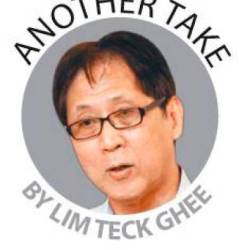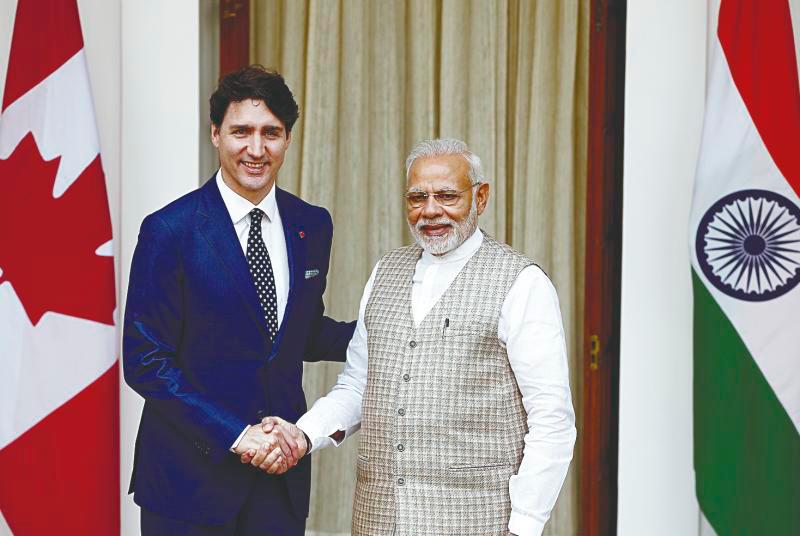FOR a long time, leaders and the Western media have been lenient towards India’s Prime Minister Narendra Modi, preferring to focus attention on China’s threats and deficiencies while lauding India as a bastion of democracy and role model for developing nations.
Thus, the glaring reality and inconvenient facts of Modi’s governance since accession to power – including a deeply flawed democracy, an inability to tackle endemic violence, bigotry, poverty and socio-economic discontent as well as increasing repression against non-Hindu minorities – have been ignored.
This is to enlist India as a strategic ally in the quest to contain, challenge and counter China’s ascent.
The latest major development in international relations was the sensational revelation by Canadian Prime Minister Justin Trudeau, implicating Indian operatives in the political assassination of Canadian citizen Hardeep Singh Niijar.
Following Trudeau’s announcement that Canadian security and intelligence agencies are “pursuing credible allegations against agents of the government of India”, who were behind the assassination of an Indian-born Canadian citizen in British Columbia last June, India immediately dismissed the accusation as “absurd” and “motivated”.
Trudeau has reiterated the accusation and emphasised that by pursuing the case, Canada is upholding the “rules-based international order that we believe in”.
This is the same “rules-based international order” often invoked by the US in its international affairs when seeking justification for sanctions, interventions or engaging in direct military conflicts.
From the Indian side, besides the official denial and disavowal of involvement, there has been an accompanying disparaging description of Canada by Foreign Minister spokesman, Arindam Bagchi, about its “growing reputation as a place, haven for terrorists, extremists and organised crime”, and a counter demand that the Canadian government cracks down on anti-India groups operating from Canada.
The US, the most important player in this row between its two political allies on the world stage – Canada, a minor power seen by some as a US lackey and doormat, and India, an aspiring superpower – has emphasised the need for the two countries to work together on the case.
In response to a question about the issue, US Secretary of State, Antony Blinken, said: “We want to see accountability, and it is important that the investigation run its course and lead to that result”. However, the US is not intending for Canada to penalise India in any way in this particular case.
Accountability and outcomes
On the investigation, according to US Ambassador to Canada David Cohen, it was “shared intelligence among Five Eyes partners”, which informed Trudeau of the possible involvement of Indian agents in the murder.
The Five Eyes network of the US, Britain, Canada, Australia and New Zealand has been described as “one of the most comprehensive known espionage alliances in human history”.
With the network’s main target being Russia and China, and with India identified by US Congress’ Subcommittee on Intelligence and Special Operations as a potential partner to work with in “confronting great power competition from China and Russia”, it is certain that Trudeau has evidence on Indian official involvement.
Noteworthy, too, is that the Five Eyes countries of the UK and Australia have said they are monitoring the situation and communicating with Indian officials.
This is all the accountability that the world can expect from the West in response to Modi’s India’s dark side.
Sound and fury show now over
For Trudeau and Modi, now that the immediate sound and fury show is over, there is a ceasefire and gradual return to normal relations. However, the outcomes for their respective political standings are quite different.
Modi’s domestic image has been considerably strengthened by this particular episode and should stand him and his BJP (Bharatiya Janata Party) party well in the state elections and Indian general election due next year.
On the other hand, Trudeau has not benefitted from the entanglement, with polls showing a plunge in his popularity, and an Ipsos survey amid the Indian standoff revealing that only 31% of Canadians now prefer him as their leader while 40% are in favour of the Conservative leader Pierre Poilievre.
The latest developments show that Trudeau is unwilling to further antagonise Modi and the US by pursuing the case despite his initial pronouncement.
A hasty retreat and loss of face for Trudeau in this instance appears easier to deal with than losing the support of the US, which may affect his power base in Canada.
The wild card for Modi’s India is the impact on the Sikh diaspora in Canada, Australia and the UK as well as the Sikh community in India.
The discord and tensions have had ripple effects in disparate areas, including remittances from Canada to Punjab, community sense of belonging and loyalties and, most importantly, on the Sikh struggle for a separate ethno-religious homeland for Khalistan.
That struggle killed tens of thousands in the 1980s and ‘90s and was eventually crushed.
Today, the independence drive has been provided with a renewed and unpredictable impetus.
The Five Eyes members will be monitoring developments in this controversy and will also be actively involved in behind-the-scene efforts to cover up Indian involvement.
This will ensure that India, whatever its failure in abiding by the Western version of a rules-based international order, remains the centrepiece of their Indo-Pacific strategy to maintain Western dominance and bring down China.
LimTeck Ghee’s Another Take is aimed at demystifying social orthodoxy. Comments: letters@thesundaily.com










